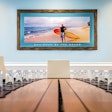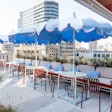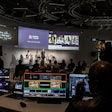Research firm IBISWorld predicts the trade show and conference planning industry will reach prerecession levels this year with revenue of $13.5 billion. Venues around the country are vying for that business, adding creative options to attract potential clients. Here’s a look at some of the benefits available for your next event.
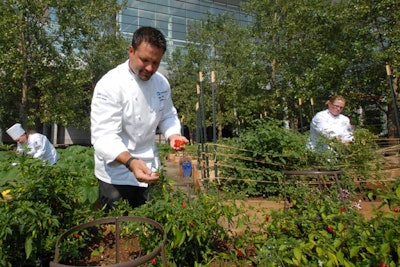
More than 2,000 plants are growing in Blue Bear Farm, a 5,000-square-foot garden on the grounds of the Colorado Convention Center. The facility’s caterer, Centerplate, manages the farm and uses the fruits, vegetables, and herbs in meals served to convention attendees. It also operates the Blue Bear Farm Food Truck, which parks outside the convention center during large events and serves items made with garden produce. Planners can also use the space for receptions.
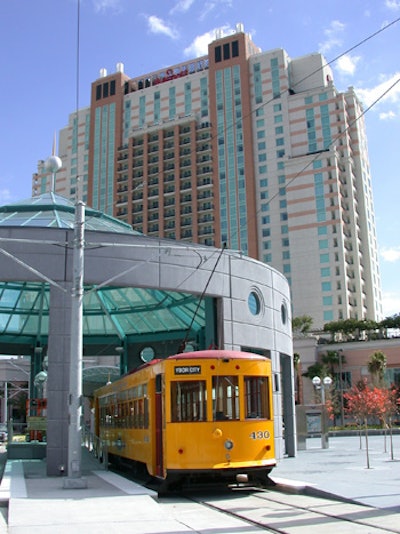
The Tampa Convention Center is offering conference attendees free, unlimited access to the city’s TECO Line Streetcar System through the end of 2013. Attendees show their conference badge to board the streetcar at any of the 11 stations in downtown Tampa and Ybor City. The streetcars run every half hour, seven days a week.
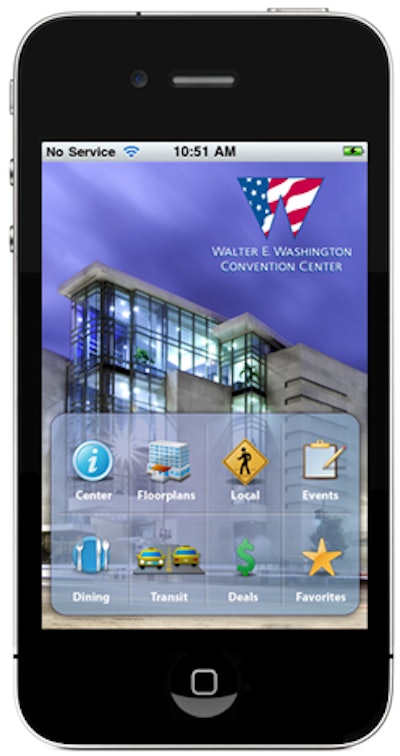
Planners holding events at the Walter E. Washington Convention Center in Washington, D.C., can use the venue’s free mobile app for their event. Standard features of the app, built by SwiftMobile, include a searchable session agenda, floor plans, a transportation guide, flight schedules, GPS-enabled city maps, and the event’s Twitter feed. For a fee that starts at $5,000, planners can add sponsorship and advertising options, an interactive trade show directory, speaker and attendee profiles, surveys, registration information, games, networking options, and more.
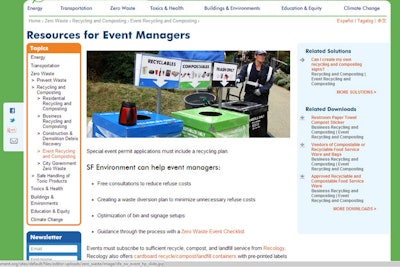
The San Francisco Department of the Environment provides a variety of resources for planners hosting events at the Moscone Center and other venues around the city. The department’s Web site provides information about free consultation services, a zero-waste event checklist, printable signs, and a list of companies that provide sustainability services. Every event held in San Francisco must provide recycling and composting service.
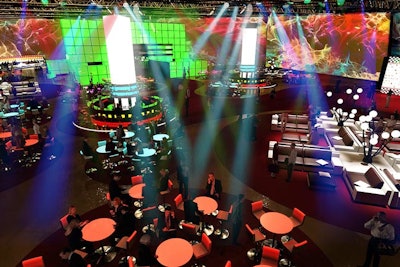
The Long Beach Arena in California will open its new Pacific Ballroom in October. The 45,000-square-foot space will be equipped with a $1.6 million lighting, sound, and video system that is controlled from an iPad. Event hosts can use the technology for no additional charge.
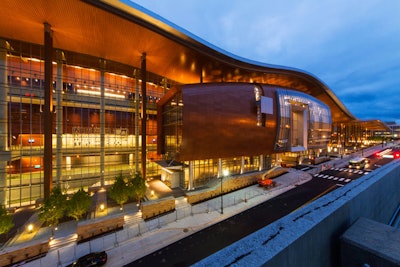
The new Music City Center, which opened in May in Nashville, has an eight-acre exhibit hall equipped with utility boxes every 30 feet to provide easy access to water, compressed air, and telecommunication equipment for exhibitors.
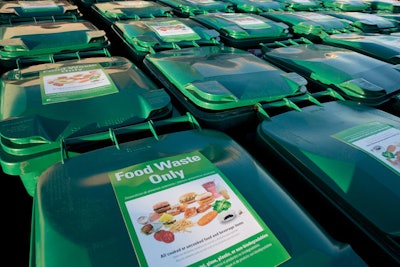
Planners looking to make their events more “green” can take advantage of a new food diversion program offered by the Orange County Convention Center in Orlando. The facility diverts back-of-house food waste (food scraps from plates or perishable food that cannot be donated) into bins that are collected by Organic Matters, a company that processes it into livestock feed.

















